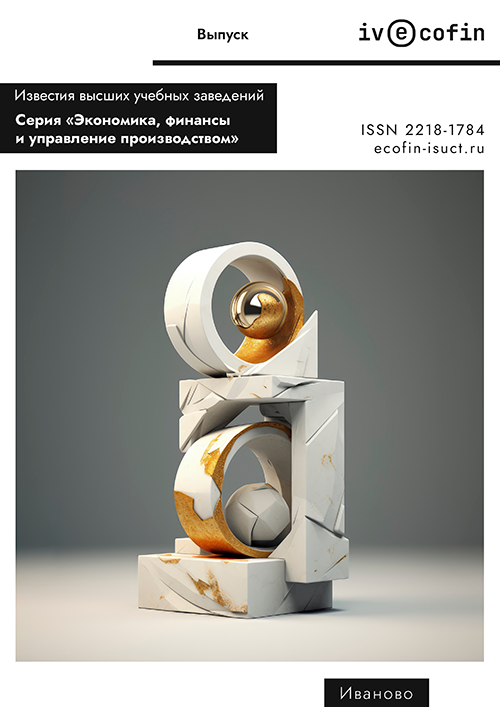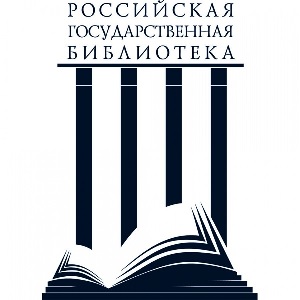ЦИФРОВЫЕ ТЕХНОЛОГИИ ТАМОЖЕННЫХ ОРГАНОВ: НОВЫЕ ВОЗМОЖНОСТИ ДЛЯ ДОБРОСОВЕСТНОГО БИЗНЕСА
Аннотация
В статье рассмотрены ключевые моменты внедрения в деятельность таможенных органов информационных технологий, так как специфика деятельности участников внешнеэкономической деятельности требует скорости принятия важных решений для обеспечения качественного и своевременного выпуска продукции. Процедуры автоматической регистрации таможенной декларации и автоматического выпуска, применяемые в отношении значительного массива добросовестных участников ВЭД, вселяют в бизнес уверенность и надежду, что ему будет комфортно работать в таких условиях. В связи с этим проведён анализ Стратегии развития таможенной службы Российской Федерации до 2030 г., рассмотрена деятельность Главного управления информационных технологий по развитию и совершенствованию телекоммуникационной инфраструктуры таможенных органов. В условиях роста трансграничных перемещений нужен механизм, который позволит облегчить условия ведения бизнеса, упростить таможенные формальности. В Евразийской экономической комиссии механизм «единого окна» представляют, как возможность однократного представления данных через единый канал с возможностью совершать экспортно-импортные таможенные формальности во взаимодействии с государственными органами. Развитие механизма «единого окна» на территории Евразийского экономического союза является одним из актуальных и приоритетных направлений сотрудничества, так как, по сути, применение «единого окна» является эффективным инструментом упрощения процедур международной торговли, который позволит государственным органам и представителям бизнеса минимизировать свои издержки при совершении экспортных, импортных и транзитных операций. Задачами исследования являются выделение основных трудностей осуществления деятельности посредством применения цифровых технологий в области таможенного дела и формирование предложений по их применению на всех этапах осуществления за счет расширения использования информационных технологий. Развитие цифровых таможен способствует существенному сокращению времени совершения операций по таможенному оформлению, а также обработке и хранению больших массивов информации.
Литература
Agamagomedova S. Customs control of goods containing IP objects in the Development Strategy of the Customs Service of the Russian Federation until 2030. Intellectual property. Industrial property. 2020. N 10. Р. 50-55. (in Russian).
Bakaeva O.Yu. The main directions of application of digital methods and technologies in the customs sphere: legal issues. Issues of economics and law. 2019. N 128. Р. 27-39. DOI: 10.14451/2.128.27. (in Russian).
Bestaeva L.I., Nikolova A.A. Electronic document management as a way to optimize business processes. Materials of the international conference «Current trends and prospects for the development of the national economy». Vladikavkaz: Tsopanova A.Yu. 2018. Р. 29-33. (in Russian).
Goncharov V.S., Kovaleva N.N. Improving accounting, control and analytical processes in the digital economy. Materials of the VII International scientific and practical conference «Statistical analysis of the socio-economic development of the subjects of the Russian Federation». Bryansk: ВSETU. 2020. Р. 100-104. (in Russian).
Gudkova O.V., Ermakova L.V. Rendering assistance in carrying out customs control by specialists and experts of other state bodies of the Russian Federation. Ivecofin. 2020. №1(43). P. 24-29. (in Russian).
Ermakova L.V. Foreign trade of Russia: the main problems and trends of development. Finance and accounting policy. 2018. N 2 (4). Р. 5-8. (in Russian).
Kalinina K.I., Lazutchenkova A.A., Gudkova O.V. Innovative technologies in the organization of customs affairs. Materials of the all-Russian scientific and practical conference «Current issues of economic security and customs». Bryansk: BSU named after Acad. I.G. Petrovsky.2020. Р. 49-53. (in Russian).
Kovaleva N.N., Kovaleva N.A. The use of global communication resources in the promotion of services on regional and national markets. Bulletin of the Bryansk State University. 2019. № 1(39). P. 174-182. (in Russian).
Kovaleva N.N., Khamyakov N.A. Customs and tariff regulation of foreign economic activity in the prism of antimonopoly policy. Materials of the all-Russian scientific and practical conference «Modern antimonopoly policy of Russia: law enforcement practice in the Bryansk region». Bryansk: BSU named after Acad. I.G. Petrovsky. 2019. Р. 87-89. (in Russian).
Kovarda V.V., Laptev R.A. Improving the customs control system through its prospective digitalization within the framework of the development of the system of ensuring economic security of Russia. Bulletin of Eurasian Science. 2020. N 4. 20ECVN420. (in Russian).
Laptev R.A., Rogov R.A. Investigation of the role of customs authorities in ensuring Russia's foreign economic security. Bulletin of Eurasian Science. 2019. N 4. 52ECVN419. (in Russian).
Nazarova O.G., Klimenko A.D. Information security during the formation of the information economy in Russia. Economics. Sociology. Law. 2020. N 2(18). P. 35-41. (in Russian).
Novikova T.B. Problems and prospects of development of digital technologies in customs. International Journal of Humanities and Natural Sciences. 2021. N 2-2. Р. 186-189. (in Russian).
Ponamoreva A.O. Problems of information support of customs authorities. Young scientist. 2019. N 42 (280). P. 204-206. (in Russian).
Decree of the Government of the Russian Federation N 1388-r of 23.05.2020 "Strategy for the development of the Customs Service of the Russian Federation until 2030". http://www.consultant.ru/document/cons_doc_LAW_353557/. (in Russian).
Recommendation N 33 of the United Nations Center for Trade Facilitation and Electronic Business. http://www.eurasiancommission.org/ru/act/dmi/inftech/docs_pr/conf/Documents/Rec33_2005%20.pdf.
Sevryukova S.V., Lyulina I.O. Statistical analysis of foreign trade operations of Russia. Actual Issues of the Modern Economics. 2020. N 2. Р. 315-320. DOI: 10.34755/IROK.2020.21.32.049. (in Russian).
Tuskayeva M.R., Vazagova K.Z. The possibility of using the experience of foreign countries in reforming the Russian tax system. Materials of the International scientific and practical conference «Current trends and prospects for the development of the national economy». Vladikavkaz: Tsopanova A.Yu. 2018. Р. 35-42. (in Russian).
Decree of the President of the Russian Federation N 400 of 02.07.2021 "On the National Security Strategy of the Russian Federation". http://www.consultant.ru/document/cons_doc_ LAW_389271/. (in Russian).
Official website of the Federal Customs Service of Russia. http://customs.ru. (in Russian).












